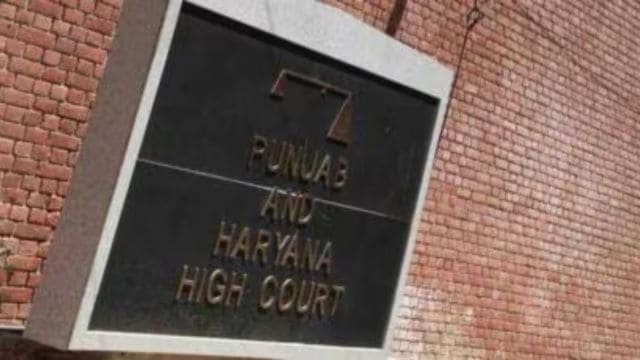GMCH-32 PG medical admissions: Punjab and Haryana HC shuts door on domicile quota
Says UT must follow apex court ruling striking down residence-based reservation; rejects bid to reclassify state quota seats
 The administration argued that the conversion would prevent disruption in the admission process and avoid exceeding the 50% cap on the All India Quota (AIQ). (File Photos)
The administration argued that the conversion would prevent disruption in the admission process and avoid exceeding the 50% cap on the All India Quota (AIQ). (File Photos)The Punjab and Haryana High Court on May 27 dismissed a batch of four civil writ petitions, including Shubhamdeep Singh Kang vs Union Territory, Chandigarh and another, challenging the modalities for postgraduate (PG) medical admissions in Chandigarh.
The bench of Chief Justice Sheel Nagu and Justice Sumeet Goel reinforced the Supreme Court’s earlier ruling in Dr Tanvi Behl vs Shrey Goel, which declared domicile-based reservations for PG medical courses unconstitutional.
The division bench of Chief Justice Sheel Nagu and Justice Sumeet Goel addressed the contentious issue of residence-based reservations for NEET PG admissions (MD/MS) 2024, following multiple legal challenges and clarification requests by the Union Territory (UT) Administration.
The High Court held that admissions must strictly follow the Supreme Court’s directive, which struck down residence-based quotas and mandated that state quota seats—beyond a reasonable number of institutional preference seats—be filled based on merit in the all-India examination.
The High Court affirmed the binding nature of the apex court’s ruling on the current admission cycle.
The court also rejected the UT Administration’s attempt to convert remaining UT Pool state quota seats into Institutional Preference Pool seats for the third round of counselling, as proposed in a public notice dated April 9, 2025.
The administration argued that the conversion would prevent disruption in the admission process and avoid exceeding the 50% cap on the All India Quota (AIQ). However, the High Court found the move inconsistent with the Supreme Court’s order, observing:
“The Hon’ble Supreme Court in Shrey Goel SC judgment had afforded protection to the students who had already received the benefit of reservation on the residence/domicile basis and were either undergoing or had successfully completed their course.”
Regarding petitioner Shubhamdeep Singh Kang—who had surrendered his allotted seat after the first and second counselling rounds in anticipation of a better option—the court held that he did not qualify for protection under the Supreme Court’s ruling.
The bench noted: “In light of such voluntary act of surrender, it cannot be said that the petitioner was pursuing the course in question, thereby, failing to be within the foundational basis for protection contemplated under Shrey Goel SC judgment.”
The court directed the UT administration to conduct admissions in accordance with the Shrey Goel judgment and the Supreme Court’s order dated March 24, 2025, which dismissed the UT’s clarification application with costs of Rs 10,000. The High Court’s ruling reinforces a merit-based approach, ensuring that vacant seats are filled strictly on NEET PG rankings, not regional preferences.
This decision is expected to have wide-ranging implications for PG medical admissions in Chandigarh, particularly for the Government Medical College and Hospital (GMCH), Sector-32B, where the contested seats are located.







